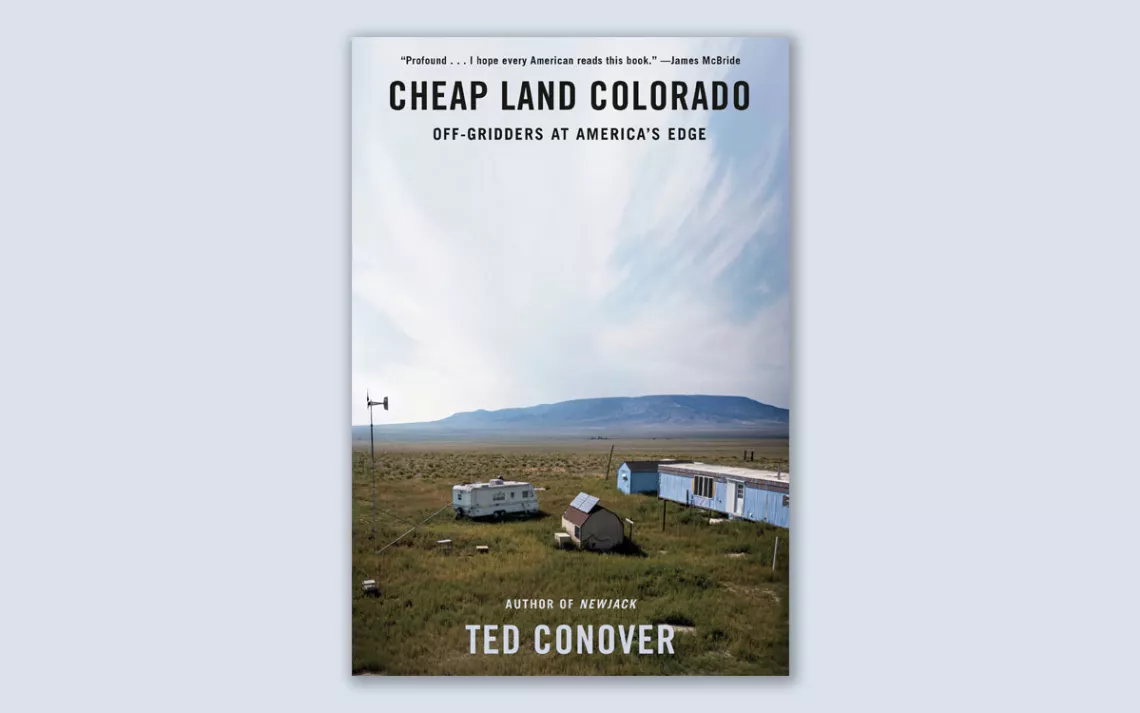You Can Buy Cheap Land in Colorado, but There's a Catch
"Cheap Land Colorado" is a deeply reported guide to living in an age-old land scam

Ted Conover is known for immersing himself in the places he's writing about. He has hopped trains, worked as a prison guard at Sing Sing, and retaken college math in order to land a job as a USDA meat inspector. Conover's groundwork for Cheap Land Colorado: Off-Gridders at America's Edge (Knopf, 2022) was simpler. Fascinated by the isolated trailers dotting Colorado's San Luis Valley, he began volunteering with a local aid society, passing out firewood. Before long, he had bought a used trailer and rented a spot to park it.
The "cheap land" of the book's title is the lingering consequence of an old scam. In the 1970s, wheeler-dealers laid out roads—and nothing else—for future subdivisions. The resulting lots were sold via direct mail with a level of hyperbole that ultimately attracted the censure of the Federal Trade Commission.
The valley is spectacular. But as investments go, the parcels are awful. They have little to no water access and are too far away from a city to connect to electricity, water, or sewage. Residents—many living on almost no income—are plagued by theft, trash, hordes of marauding cattle, and Costilla County police, who cite people for code violations like not having a septic system. But when Conover tracks down Tony Perry, one of the valley's early hype men, Perry is unapologetic. "We were selling dreams," he says.
If you type "cheap land Colorado" into a search engine, lots from the San Luis Valley are still among the top results. New rubes show up with dreams of a preppers' retreat, pot farm, retirement spread, or utopian Pan-African commune. Most leave right away. Those who stay include Conover. "It was hard to be surrounded by such beautiful, inexpensive land all the time," he writes, "and not imagine owning a plot of it."
 The Magazine of The Sierra Club
The Magazine of The Sierra Club



